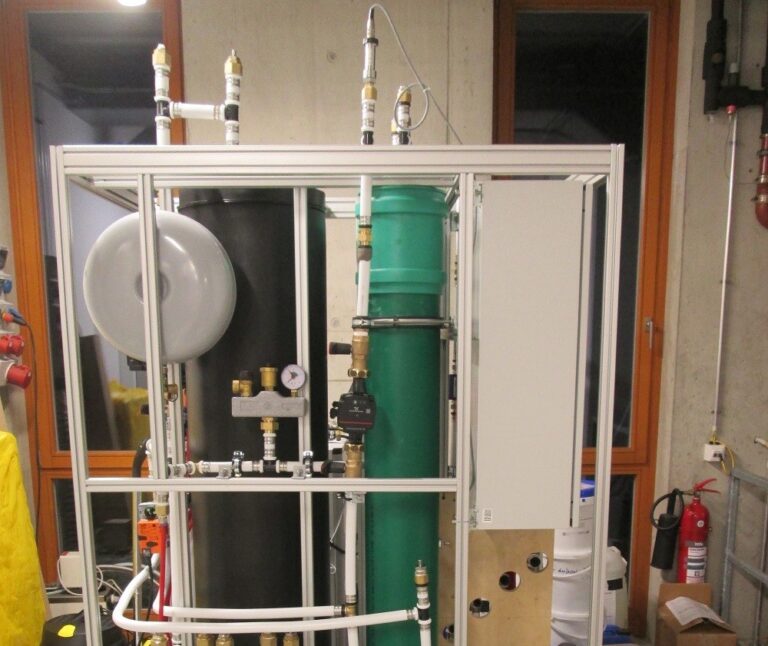Germany’s Fraunhofer Institute for Solar Energy Systems (Fraunhofer ISE) has unveiled a new heat pump intended for use in industrial processes with heating and cooling requirements.
The German research institute said it developed the system in collaboration with the Bavarian Center for Applied Energy Research (ZAE Bayern) and Germany-based industrial equipment supplier Mafac E. Schwarz GmbH & Co. KG, under the umbrella of the expected time of arrival at existing facilities research project funded by the Federal Ministry of Economic Affairs and Climate Protection (BMWK).
The Fraunhofer ISE’s contribution to the project consisted of providing a special propane (R290) refrigeration circuit that reportedly does not exceed the maximum limit of 150 grams of propane. “The heat pump can thus operate independently of the safety requirements that apply to indoor heat pump installations with flammable refrigerants,” the company said in a statement.
The consortium tested the heat pump in combination with an existing industrial cleaning machine that was previously powered exclusively by electricity from the power grid. This machine usually runs in a two-shift system with five production days per week and 48 production weeks per year.
The tests showed that the heat pump can achieve a combined heating and cooling capacity of 5.6, which gives the Fraunhofer ISE better performance than the machine’s performance when running on mains power.
“The power requirement for heating the process water and for heating the supply air for drying was reduced by half, while the power used for heating the fresh water was reduced by as much as 80%,” the research institute said. . “By recirculating the exhaust air, more than 10,000 liters of fresh water can be saved annually, thanks to a new type of condensing unit that efficiently cools the process exhaust air, allowing the available cooling of the heat pump to be used when cleaning the machine in line with the process.”
The consortium added that the new heat pump system can be used in other industrial processes with a temperature range of 50 C to 70 C.
This content is copyrighted and may not be reused. If you would like to collaborate with us and reuse some of our content, please contact: editors@pv-magazine.com.


